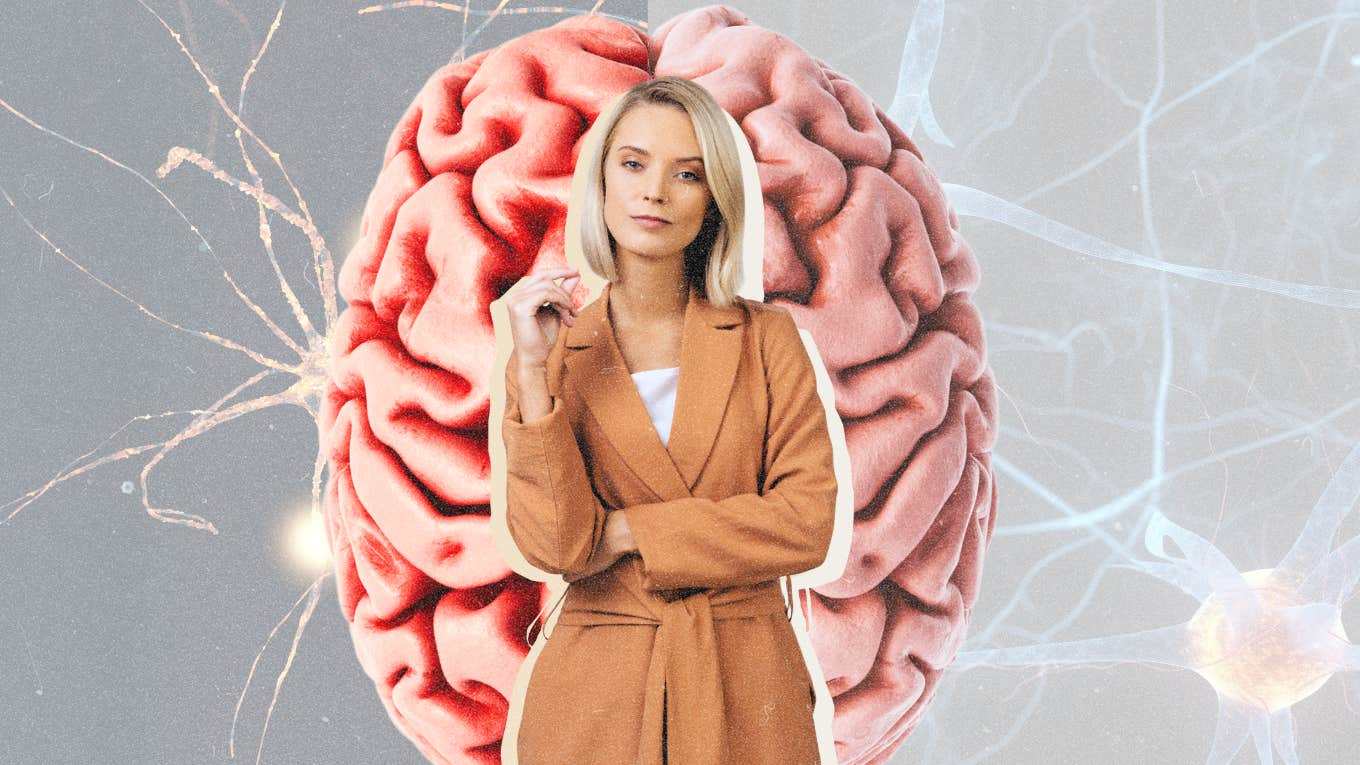The Neurobiological Reason It's So Hard To Change & 5 Ways To Make It Happen Anyway
Our brains are trying to protect us, but sometimes they go a little too far.
 Icons8 Photos, Firstsignal, Artimas, rcphotostock | Canva
Icons8 Photos, Firstsignal, Artimas, rcphotostock | Canva Imagine an alien species watching human behavior for the first time. At first, they see our bodies, clothing choices, and behaviors to determine who we are. We can easily change our clothing choices to present a different person to the world.
Most of our other behaviors are not so easy to change. Adapting or altering our most deeply ingrained habits can be a very challenging endeavor, and those habits say a lot about who we are as humans.
Finding it hard to change? Blame your brain
Our brains are wired to learn through connections and go for consistency and predictability so habits are easily formed. Physiologically, a set of neurons in the brain fire together and develop a neural network. So, while it may seem strange, a habit is technically a consolidated neural network.
This innate wiring process helps us learn how to walk, swim, ride a bicycle, speak, and many other actions. Our brains like, look for, and develop patterns and routines so our brains do not have to relearn everything later. Some habits are beneficial, like brushing our teeth every day, stopping at red lights, and taking our keys with us when we close and lock a door.
On the more troublesome side, however, this brain tendency can get us into trouble. One example is having ice cream after school to help us calm down (so we learn to eat after stress, not when hungry). If we do not face and change a habit, we may find ourselves devouring ice cream or alcohol after work every day or after an unsettling dream in the middle of the night, which leads to unhealthy changes in our bodies.
There are several ways to change these neural networks, but our brains tend to resist changing established neural networks. One of the least effective ways to change our lives for the better is by saying to ourselves, “I should not do that anymore!” This does not work for several reasons.
Three ways to work with your brain (instead of against it) to make meaningful change.
1. Name the habits and stay aware of them
Get very clear about your habits and how they are related to short-term benefits and problems in the future. If we do not notice what we do regularly or see how bad the results of a habit are, our brain will tend to keep the neural network firing pattern online.
Some of us will need an experienced coach to point out behaviors that do not serve us (we are not always aware of everything we habitually do). Some of us can write or journal about our lives and behaviors, with awareness emerging from deep reflection. Others will be able to quiet their minds and use mindfulness or a multi-level examination to develop an awareness of why they started the habit, what short-term rewards they get from it, and the mid and long-term consequences of the habit.
2. Stop saying you 'wish' you could change
A simple wish or using the Cognitive Distortion of “I should change” will likely not help. A true decision has no doubt, is not negotiable, and will direct behavior. A wish is hopeful with no investment, and since nature abhors a vacuum, just saying I do not want to do this behavior anymore (with no plan) will usually not work - the old neural network will emerge to fill the void.
Saying to ourselves we “should” change is usually unproductive because the resultant feelings around us “Shoulding on ourselves” are negative (could be frustration with self, anger, regret, or even hopelessness,) and negative emotions do not fuel long-term positive changes - they just get in the way or hurt us.

Photo: My Good Images via Shutterstock
3. Make a '99 Day Rule'
Regular practice of better behavior is necessary for most of us to change an old (neural) pattern. It takes a minimum, on average, of 21 days to 99 days to change a habit. It depends on many things, from the individual’s history to the kind of habit we are changing. Many of us try to make a significant change very quickly, which often results in overwhelm and giving up (the old, familiar habit patterns show up — they are just so familiar and strong).
We need to start with a manageable step in the right direction. Human futures are like compound interest in financial investments. If you change by one or two percent per week, it reaps substantial improvement in a year or two. There are different ways people have found to make a new action/behavior a habit, from getting an accountability partner to keep us on track, recording whether we do a new behavior or not every day, to not letting ourselves have breakfast until we exercise (for instance).
If you don't give your new choices, behave,iors or actions enough time to become habit you may simply be giving too to early. Set a goal and stick to it.
The M.A.D.P. System is straightforward — but no guarantee of ease
We could dive deeper into this topic, but for habits, if we are to truly change them, the three-step process of Mindful/Multi-level Awareness, Decision, and Practice is the helpful basic map to a better future.
People have developed programs to build a better future, from S.M.A.R.T. Goals to Manifestation. But, when we get serious about creating a better life using clear mindful awareness of what is a true decision and weave in regular practice, the underlying formula becomes success.
Tj Price is a Licensed Psychologist facilitating healing, mindset shift, and developmental growth in line with nature, teaching principles one can follow to strengthen each of the various types of relationships that make life meaningful.
